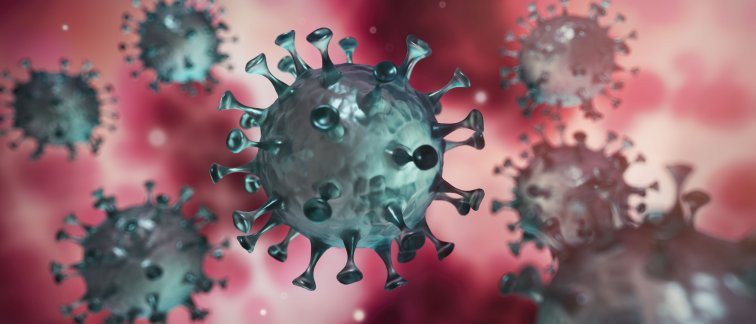Within the AI&I we have valuable expertise that can be combined to help generate valuable new insights. With this funding we enable teams of researchers to rapidly pursue innovative studies to fight the ongoing pandemic.
Laureates AI&I COVID-19 grant 2020
| Theo Geijtenbeek / R. Sanders: |
| Heparan sulphates as molecular traps to block SARS-CoV-2 infection |
| The severe acute respiratory syndrome–coronavirus 2 (SARS-CoV-2) is the cause of the pandemic of coronavirus disease 2019 (COVID-19) (1). There is an urgent need for prophylactic interventions to stop this ongoing pandemic. Strikingly, we have identified the low molecular weight (LMW) heparins as potent inhibitors of SARS-CoV-2 infections in vitro. Here we will investigate whether LMW heparins can be used as prophylactics or therapeutics to prevent SARS-CoV-2 infection. As these compounds are already used in the clinic as anticoagulant drugs, we expect to translate our preclinical findings into clinical trials rapidly, which is paramount to address the current COVID-19 crisis. |
| Marit van Gils / G. Vidarsson / T. Rispens / S. de Taeye: |
| Screening of COVID-19 antibodies using binding kinetics and epitope binning for the selection of optimal therapeutic candidates |
| Coronavirus disease 2019 (COVID-19) is caused by coronavirus SARS-CoV-2 and is a rapidly spreading pandemic. Neutralizing monoclonal antibodies have been effective in treatment and prevention of infection with Ebola virus, respiratory syncytial virus (RSV), rabies and other infectious diseases. As COVID-19 is of limited diversity with known antibody responses in patients, we hypothesize that COVID-19-specific antibodies will be important for diagnostics and provide a promising avenue for treatment. Successful antibody treatment depends on binding affinity, functionality and the exact molecular target. Therefore, we will screen COVID-19 antibodies for these characteristics to select the best candidates. |
| Carla Ribeiro / F. Jean / V. Muncan / M. Wildenberg |
| Fighting COVID-19 from the inside: Impact of autophagy-based therapies on intestinal SARS-CoV-2 dissemination |
| Seminal studies highlight COVID-19 as a multi-organ disease, and reported infectious SARS-CoV-2 in stool samples long after respiratory clearance. This underlines the urgency to elucidate mechanisms of SARS-CoV-2 interaction ith the gastrointestinal tract. Using our unique 2D intestinal organoid model, here we aim to i) elucidate the enteric entry route and cellular tropism of SARS-CoV-2, ii) determine the impact of SARS-CoV-2 transmission on intestine function and autophagy, and iii) identify FDA-approved autophagy drugs that limit SARS-CoV-2 acquisition and replication ex vivo. Our innovative approach will advance understanding of extrapulmonary COVID-19 manifestations, and expedite repurposing of therapies to combat SARS-CoV-2 dissemination. |
| Jeroen den Dunnen / M. Winther / M. van Gils / G. Vidarsson: |
| Obtaining proof-of-concept that Fostamatinib can counteract excessive inflammation induced by anti-SARS-CoV-2 antibodies |
| During SARS-CoV infection, the early presence of IgG antibodies against the Spike protein causes severe acute lung injury by skewing the response of wound-healing lung macrophages. This results in strongly up-regulated pro-inflammatory cytokines and suppressed anti-viral type I IFN responses. Our previous work identified that this conversion of wound-healing “M2” macrophages can be specifically counteracted by the small molecule inhibitor Fostamatinib. The main goal of this proposal is to rapidly obtain in vitro proof-of-concept that Fostamatinib counteracts anti-Spike IgG-induced inflammation. The recent FDA/EMA-approval of Fostamatinib may allow rapid repurposing of this drug to treat severely ill COVID-19 patients. |

